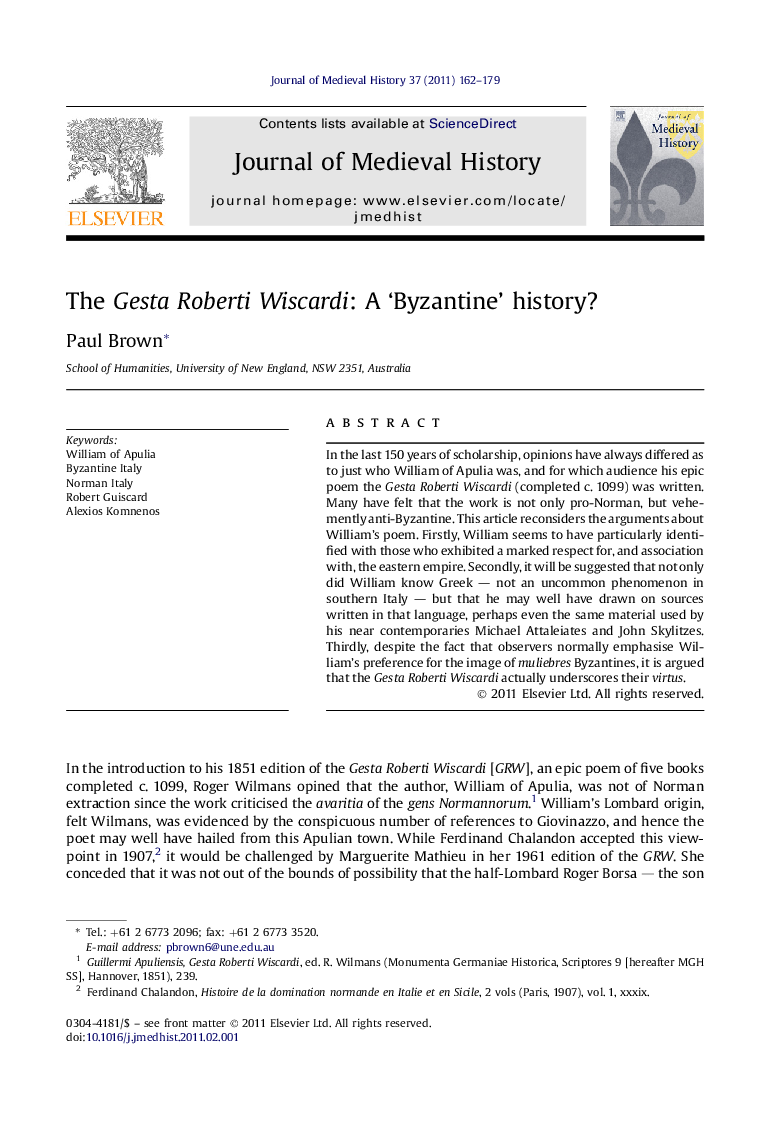| Article ID | Journal | Published Year | Pages | File Type |
|---|---|---|---|---|
| 1160104 | Journal of Medieval History | 2011 | 18 Pages |
Abstract
In the last 150 years of scholarship, opinions have always differed as to just who William of Apulia was, and for which audience his epic poem the Gesta Roberti Wiscardi (completed c. 1099) was written. Many have felt that the work is not only pro-Norman, but vehemently anti-Byzantine. This article reconsiders the arguments about William's poem. Firstly, William seems to have particularly identified with those who exhibited a marked respect for, and association with, the eastern empire. Secondly, it will be suggested that not only did William know Greek â not an uncommon phenomenon in southern Italy â but that he may well have drawn on sources written in that language, perhaps even the same material used by his near contemporaries Michael Attaleiates and John Skylitzes. Thirdly, despite the fact that observers normally emphasise William's preference for the image of muliebres Byzantines, it is argued that the Gesta Roberti Wiscardi actually underscores their virtus.
Related Topics
Social Sciences and Humanities
Arts and Humanities
History
Authors
Paul Brown,
